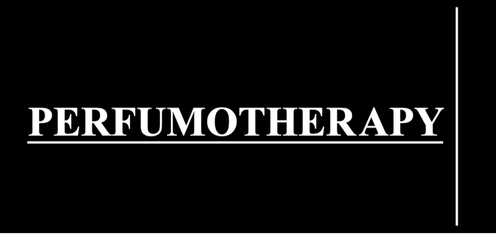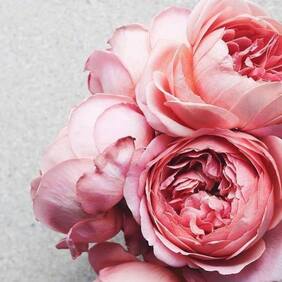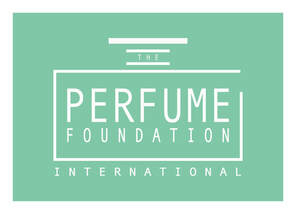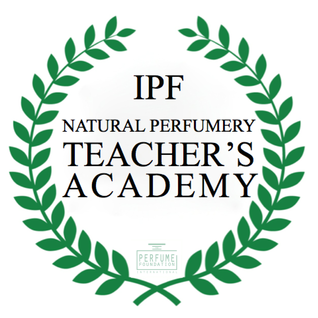LEARN PERFUMOTHERAPY
At first, I thought the Perfumotherapy course only focuses on blending skill. However, I am so surprised at what I have been trained, both useful theoric lessons and pracitical exercises base on each specific case. In addition, teachers are also kind, friendly and knowledgeable about their field. They are always willing to support me as I have questions. This course is a meaningful course and crucial basis for me to become a natural aromatherapist and natural perfumer in the future. I love my teachers, I like my course." Minh Thuy
To become a Perfumotherapist, you need to enrol for 3 certified courses and: Natural Aromatherapy, Olfaction Training and Natural Perfumery. After receiving the Certification for these 3 sectors of activity, you can apply to become a Certified Perfumotherapist by submitting and successfully passing the final Perfumotherapy Test
The courses are given by Françoise Rapp (Natural Aromatherapy and Natural Perfumery) and Creezy Courtoy (Olfaction Training).
Course 2 and Course 3 can be taken simultaneously !
Introduction and Over-view of Courses:COURSE 1
WHAT IS PERFUMOTHERAPY
The following is an intensive online course created and given by Creezy Courtoy Teacher and Member of the Teacher's Academy, in which you will learn:
Module 1 - Introduction to Perfumotherapy
COURSE 2
OLFACTION TRAINING
The following is an intensive online Olfaction Training course, created and given by Creezy Courtoy, in which you will learn:
Module 1- Introduction to Olfaction:
Personal Zoom Meeting before the course and survey after the course.
COURSE 3
NATURAL AROMATHERAPY
The following is an intensive Natural Aromatherapy course given by Françoise Rapp, Certified Aromatherapist, Teacher and Member of The Teacher's Academy, in which you will learn:
Module 1 – Introduction to Essential Oils
Basil, bergamot, camomilla roman, cinnamon (bark), eucalyptus globulus, eucalyptus radiata, frankincense, geranium, ginger, helichrysum, katrafay, fine lavender, yellow lemon, neroli, niaouli, sweet orange, peppermint, petitgrain bigarade, ravintsara, rose, rosemary (cineole), tea tree, thyme (linalol), wintergreen, ylang ylang
Module 6 – The Science and Art of Blending Essential Oils
COURSE 4
FRENCH NATURAL PERFUMERY
The following is a Natural Perfumery intensive course given by Françoise Rapp, French Certified Natural Perfumer, Teacher and Member of The Teacher's Academy.
Introduction and Over-view of course:
This certification program has been specially designed for individuals and professionals alike who are interested in the art and science of French Natural Perfumes. This online course provides you with a solid foundation so you can create unique, natural fragrances for yourself, your cosmetics and personal care products. It promises to be interactive, comprehensive and lively. Think of it as your guided journey into the world of French Natural Perfumery
The program consists of individual work and 1-hour one-on-one Zoom meeting with Françoise, nine workbooks, and a total of 270 workbook + study book pages.
Once you enroll in the course, you receive a starting guide to help you to fully be prepared for the class and answer to all your questions about the class kit, how to prepare your home-lab and natural perfumer organ, the safety and storing of raw material, etc. You will receive also the glossary of natural French perfumery.
A detailed starting guide is mailed to you as soon as you pay for the course. It clearly explains the class requirements. Purchase 15 essences for the class kit first and then add others as the class progresses. Scales, Beckers, etc., can be bought for the mid-term of the course; the starting guide lists different precision scale models that can fit the budget. The natural essences kit (15 essences in 2 ml, 5 ml, or 10 ml) can be a budget of 100€ approximately depending on the supplier (we provide you a list of trustful companies). Please note that the starter kit helps you build your perfumer’s organ.
Weekly Modules:
Module 1 – Introduction to French Natural Perfumery
Natural perfumery history through the major periods and their original recipes:
Module 2 – The Olfactory Families
Exploring the various olfactory families and the natural, raw materials dedicated to each one. Learn about the history of the olfactory families and their facets. You will also learn how to adjust and compliment different scents in their classical and modern tone:
Module 3 – Exploring 40 monographs of natural essences, absolutes and CO2 extracts:
AMBERGRIS, AMBRETTE, BASIL BENZOIN, BERGAMOT, BOIS DE ROSE, BUDDHA WOOD, CASSIE, CARDAMOM, CEDARWOOD ATLAS, CEDRAT, CISTUS, CLARY SAGE FRANCE, COCOA, GAIAC WOOD, GALBANUM, GERANIUM EGYPT, GINGER, JASMINE GRANDIFLORUM, JUNIPER BERRIES, LAVENDER FINE FRANCE, MANDARIN RED, NEROLI MORROCCO, ORRIS, PATCHOULI, PETITGRAIN BERGAMOT, PETITGRAIN CITRONNIER, PINK PEPPER, PINK GRAPEFRUIT ITALIAN, PEPPERMINT USA, PERU BASALM, ROSE, TAGETE, TOBACCO, TONKA BEAN, TUBEROSE, VANILLA, VETIVER HAITI, YLANG YLANG EXTRA
Module 4 – Natural perfume structure and custom creation
This week, you learn in-depth information about natural perfumery making & building. It prepares you for the following weeks during which you will apply the knowledge and express fully your creative mind. This is what awaits you:
Modules 5 & 6 – Creation in action
Module 7 – Zoom masterclass: review and questions about natural raw material
Module 8 – Zoom masterclass: adjusting your creation with different neutral bases
Module 9 – Zoom masterclass: the creative and technical challenges review
When creating a natural perfume, you may face some technical challenges, as while some essences are a perfect match, others are not. In this masterclass, you will learn the tricks and tips to make your natural perfume perfectly balanced and long lasting.
Module 10 – The New Luxury Code for perfumers & Natural perfumery examination
This week, you are going learn everything about IPF Luxury Code for Perfumers.
And this is the time where you get also to experience your fragrance in full bloom.
As an option of the course, you can send a perfume sample to Françoise Rapp with the descriptive concept and objectives of your creative fragrance.
This allows you to have the review of a professional o your work with valuable comments that help to improvement your skills.
The perfume sample can be made during the course as a course project or after the course; no later than one month after the course.
COURSE 5
FINAL APPLICATION
Perfumotherapy's Historical recipes and cases studies
Module 1: Ancient & Modern Medicinal Perfumes
Follow a 13 weeks intensive online course:
- 2 weeks intensive online course: Original Function of Perfume
- 4 weeks intensive online course: Olfaction Training and Natural Aromatherapy (2 modules / week)
- 5 weeks intensive online course: Natural Perfumery (2 modules / week)
- 2 weeks intensive online course: Historical recipes and cases studies
After completing the courses and applying for Perfumotherapy, you will receive 4 Certificates with a QR Code from the International Perfume Foundation, you will be Certified by the International Perfume Foundation as a Natural Perfumer, Olfaction Trainer, Natural Aromatherapist and Perfumotherapist.
As a confirmation of your certifications, you will be part of the first Perfumotherapists and have your name and picture listed in the IPF Directory.
The courses are given by Françoise Rapp (Natural Aromatherapy and Natural Perfumery) and Creezy Courtoy (Olfaction Training).
Course 2 and Course 3 can be taken simultaneously !
Introduction and Over-view of Courses:COURSE 1
WHAT IS PERFUMOTHERAPY
The following is an intensive online course created and given by Creezy Courtoy Teacher and Member of the Teacher's Academy, in which you will learn:
Module 1 - Introduction to Perfumotherapy
- Definition of perfumotherapy
- Use of fragrances in the Antique world
- Development of the first universities
- Development of the first hospitals
- Development of the perfume industry
- Conclusion
COURSE 2
OLFACTION TRAINING
The following is an intensive online Olfaction Training course, created and given by Creezy Courtoy, in which you will learn:
Module 1- Introduction to Olfaction:
- History of olfaction
- Decline of the use of the olfactory sense in our society
- Primary use of the olfactory sense.
- Animal examples
- Importance of olfaction
- The nature of odor and the olfactory system
- Definition of odors
- Odor functions and power
- Human odor
- How scents, fragrances and perfumes impact our mind
- Olfactory messages to the brain
- Sensations and memories
- Discover the impact of scents on your body
- Travel with a scent through your body
- Messages to hormones
- Messages to the nervous system
- Messages to DNA
- Breathing and smelling, learning how to breathe correctly to benefit from odors
- Methods to preserve and develop the olfactory sense
- Anosmia, hyposmia & dysosmia
- Methods to restore the olfactory sense
- Introduction to aromatherapy
- Example of several plants and their beneficial power.
- History of Research
- Importance of Olfaction in Perfumotherapy
- Introduction to plant DNA to restore human DNA
- Process & rules
- New Luxury Code
Personal Zoom Meeting before the course and survey after the course.
COURSE 3
NATURAL AROMATHERAPY
The following is an intensive Natural Aromatherapy course given by Françoise Rapp, Certified Aromatherapist, Teacher and Member of The Teacher's Academy, in which you will learn:
Module 1 – Introduction to Essential Oils
- The history of aromatherapy
- From an essence to an essential oil
- The different processes of extracting an essential oil from the plant
- The difference between hydrosols and essential oils
- The healing uses of essential oils
- What determines the quality of an essential oil
- The quality controls and criteria
- The data references
- The logos and the labels
- The certifications of analyses
- Reading the labels
- The aromatogramme: how to determine the efficiency of essential oils
- 7 keys to uses essential oils
- The safe uses of essential oils
- What not to do when using essential oils
- What to do if you misuse essential oils
- The botanical families and their properties
- The botanical families and their cautious uses
- What is a chemotype
- What is the procedure to determine the properties and qualities of essential oils
- Biochemistry and wellness properties
Basil, bergamot, camomilla roman, cinnamon (bark), eucalyptus globulus, eucalyptus radiata, frankincense, geranium, ginger, helichrysum, katrafay, fine lavender, yellow lemon, neroli, niaouli, sweet orange, peppermint, petitgrain bigarade, ravintsara, rose, rosemary (cineole), tea tree, thyme (linalol), wintergreen, ylang ylang
Module 6 – The Science and Art of Blending Essential Oils
- Rules of blending & safety
- Dosages for bath, cutaneous uses, diffusion, …
- Dosages for young children, teenagers, adults and seniors
- Zoom meeting to lead you on practical aspects and give you experts tips about custom blending + Q&A
- Introduction to flower waters & hydrosols
- 6 key points that determine the quality
- The healing uses
- The rules of blending & safety
- Process & rules
- New Luxury Code
- Download your final test
COURSE 4
FRENCH NATURAL PERFUMERY
The following is a Natural Perfumery intensive course given by Françoise Rapp, French Certified Natural Perfumer, Teacher and Member of The Teacher's Academy.
Introduction and Over-view of course:
This certification program has been specially designed for individuals and professionals alike who are interested in the art and science of French Natural Perfumes. This online course provides you with a solid foundation so you can create unique, natural fragrances for yourself, your cosmetics and personal care products. It promises to be interactive, comprehensive and lively. Think of it as your guided journey into the world of French Natural Perfumery
The program consists of individual work and 1-hour one-on-one Zoom meeting with Françoise, nine workbooks, and a total of 270 workbook + study book pages.
Once you enroll in the course, you receive a starting guide to help you to fully be prepared for the class and answer to all your questions about the class kit, how to prepare your home-lab and natural perfumer organ, the safety and storing of raw material, etc. You will receive also the glossary of natural French perfumery.
A detailed starting guide is mailed to you as soon as you pay for the course. It clearly explains the class requirements. Purchase 15 essences for the class kit first and then add others as the class progresses. Scales, Beckers, etc., can be bought for the mid-term of the course; the starting guide lists different precision scale models that can fit the budget. The natural essences kit (15 essences in 2 ml, 5 ml, or 10 ml) can be a budget of 100€ approximately depending on the supplier (we provide you a list of trustful companies). Please note that the starter kit helps you build your perfumer’s organ.
Weekly Modules:
Module 1 – Introduction to French Natural Perfumery
Natural perfumery history through the major periods and their original recipes:
- The olfactory notes and raw material fashions throughout the major historical periods
- Harvest calendar
- The glossary of natural material extraction helps you to recognize and appreciate different qualities of natural essences in its various forms.
- Activity : learn how to prepare ancient recipes of Eau de Cologne Admirable
Module 2 – The Olfactory Families
Exploring the various olfactory families and the natural, raw materials dedicated to each one. Learn about the history of the olfactory families and their facets. You will also learn how to adjust and compliment different scents in their classical and modern tone:
- The chypre family
- The floral family
- The fougère family
- The hespéridés family
- The leathery family
- The oriental family
- The woody family
- Activity : learn how to prepare the vegetable/vegan wax used in for solid natural perfumes.
Module 3 – Exploring 40 monographs of natural essences, absolutes and CO2 extracts:
AMBERGRIS, AMBRETTE, BASIL BENZOIN, BERGAMOT, BOIS DE ROSE, BUDDHA WOOD, CASSIE, CARDAMOM, CEDARWOOD ATLAS, CEDRAT, CISTUS, CLARY SAGE FRANCE, COCOA, GAIAC WOOD, GALBANUM, GERANIUM EGYPT, GINGER, JASMINE GRANDIFLORUM, JUNIPER BERRIES, LAVENDER FINE FRANCE, MANDARIN RED, NEROLI MORROCCO, ORRIS, PATCHOULI, PETITGRAIN BERGAMOT, PETITGRAIN CITRONNIER, PINK PEPPER, PINK GRAPEFRUIT ITALIAN, PEPPERMINT USA, PERU BASALM, ROSE, TAGETE, TOBACCO, TONKA BEAN, TUBEROSE, VANILLA, VETIVER HAITI, YLANG YLANG EXTRA
- Their olfactory classification
- Their origin, base solubility, IFRA standards, safety & cautions, odorant molecules of each natural essence, olfactory profile and evaluation, 40 natural perfumes accords
- The natural isolats: their place and role in the natural perfumery world – what it is exactly and how is it produced
- Activity : olfactory activities & scent evaluation
Module 4 – Natural perfume structure and custom creation
This week, you learn in-depth information about natural perfumery making & building. It prepares you for the following weeks during which you will apply the knowledge and express fully your creative mind. This is what awaits you:
- The natural perfume fragrant “wheel” according to the 40 reviewed natural essences. Their intensity, fragrant family, facets and synergies
- The simple & complex accords in natural perfumery, the fixatives, the maceration process, the storage and safety while working with natural essences.
- The notes and the different structures to create a well-balanced natural perfume
- Understanding the differences between natural and classical perfumes and mastering the dos and don’ts of natural perfumery.
- Activity: you will create 10 accords, perform detailed olfactory evaluation for each of them, and create 2 guided custom blends: rose & leather suede accords
Modules 5 & 6 – Creation in action
- During these two weeks, you will practice on creating 24 accords including vertical, horizontal, rose, suede leather accords that will be given to you and to custom as well with your choice of natural essences.
- Learn 4 main perfumery diagrams: chypre, fougère, oriental and cologne.
- Prepare your scented alcoholic fixatives as indicated in module 4.
- Experiment the natural perfumes recipes in different bases: scented alcoholic, non-scented alcoholic, hydrosol, jojoba oil, vegetable wax.
- Choose two of them and mail 2x 1 ml samples to Françoise Rapp for her personal review and comments, along with any recommendations for modifications. (It serves as the pre-creative work for your final exam.)
- Activity : 24 accords practice, natural perfumery pre and production: make your inspiration real with raw material and moodboards, formulating using calcul tables (Excel document provided), learn how to weight a formulation and price it, …
Module 7 – Zoom masterclass: review and questions about natural raw material
- This week, we will review the seven olfactory families and their adaptation in natural perfumery. Using your natural perfumery essential kit (all the information are mentioned in the starting guide)
- We will discuss the solutions and the specific essences that may be used to create a variety of notes, such as marine, fruity, sweet, metallic, etc.
Module 8 – Zoom masterclass: adjusting your creation with different neutral bases
- This week, you will create your professional fragrance.
- You will learn how to adjust the formula according the various neutral bases, including concrete perfume with natural waxes, creams and natural gels.
Module 9 – Zoom masterclass: the creative and technical challenges review
When creating a natural perfume, you may face some technical challenges, as while some essences are a perfect match, others are not. In this masterclass, you will learn the tricks and tips to make your natural perfume perfectly balanced and long lasting.
Module 10 – The New Luxury Code for perfumers & Natural perfumery examination
This week, you are going learn everything about IPF Luxury Code for Perfumers.
And this is the time where you get also to experience your fragrance in full bloom.
As an option of the course, you can send a perfume sample to Françoise Rapp with the descriptive concept and objectives of your creative fragrance.
This allows you to have the review of a professional o your work with valuable comments that help to improvement your skills.
The perfume sample can be made during the course as a course project or after the course; no later than one month after the course.
COURSE 5
FINAL APPLICATION
Perfumotherapy's Historical recipes and cases studies
Module 1: Ancient & Modern Medicinal Perfumes
- The pomanders
- The vinegars
- The incense
- The anointing oils.
- Bridging Aromatherapy and perfumery in modern life: cosmetics & personal care, ambiance & perfumes for the self.
- 5 Recipes to practice
- The perfumotherapy method of formula making:
- Learn how to select the correct ingredients properly.
- Learn the method to build a perfumotherapy formula.
- Determine the proper perfume concentration based on the application and safety of uses.
- 5 Case Studies & Practice
Follow a 13 weeks intensive online course:
- 2 weeks intensive online course: Original Function of Perfume
- 4 weeks intensive online course: Olfaction Training and Natural Aromatherapy (2 modules / week)
- 5 weeks intensive online course: Natural Perfumery (2 modules / week)
- 2 weeks intensive online course: Historical recipes and cases studies
After completing the courses and applying for Perfumotherapy, you will receive 4 Certificates with a QR Code from the International Perfume Foundation, you will be Certified by the International Perfume Foundation as a Natural Perfumer, Olfaction Trainer, Natural Aromatherapist and Perfumotherapist.
As a confirmation of your certifications, you will be part of the first Perfumotherapists and have your name and picture listed in the IPF Directory.



